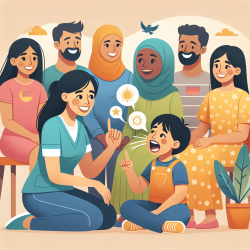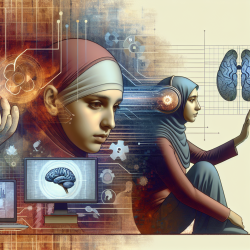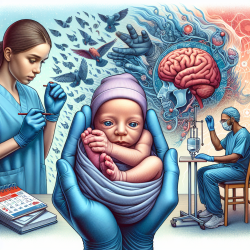Understanding the Genetic Basis of Language Ability and Creativity
The recent study titled "Genome-wide association study of school grades identifies genetic overlap between language ability, psychopathology, and creativity" provides groundbreaking insights into the genetic factors influencing language ability and creativity. This research is pivotal for practitioners in speech-language pathology and educators focused on enhancing educational outcomes for children.
Key Findings from the Study
The study analyzed genetic data from 30,982 individuals, examining the relationship between genetic markers, language ability, and creativity. It identified significant genetic overlaps between language performance and creativity, particularly highlighting a positive correlation between language ability and certain psychiatric disorders, such as schizophrenia.
Implications for Practitioners
For practitioners, these findings underscore the importance of a nuanced approach to language development interventions. Understanding that language ability and creativity may share genetic roots with certain psychopathologies can guide the development of tailored interventions. Here are some actionable steps:
- Integrate Genetic Insights: Consider genetic predispositions when assessing language abilities in children. This can help in creating personalized therapy plans that cater to individual genetic profiles.
- Focus on Creativity: Encourage activities that foster creativity, as this may enhance language abilities. Creative tasks such as storytelling, role-playing, and artistic expression can be beneficial.
- Collaborate with Geneticists: Work closely with genetic researchers to stay updated on the latest findings and integrate these insights into practice.
Encouraging Further Research
While the study provides valuable insights, it also opens avenues for further research. Practitioners are encouraged to explore the following areas:
- Longitudinal Studies: Conduct long-term studies to observe how genetic factors influence language development and creativity over time.
- Cross-Disciplinary Research: Collaborate with experts in genetics, psychology, and education to develop comprehensive intervention strategies.
- Impact of Environment: Investigate how environmental factors interact with genetic predispositions to affect language and creative abilities.
Conclusion
This research highlights the intricate relationship between genetics, language ability, and creativity. By leveraging these insights, practitioners can enhance their interventions, ultimately leading to better outcomes for children. To delve deeper into the research, you can access the original paper here: Genome-wide association study of school grades identifies genetic overlap between language ability, psychopathology and creativity.










